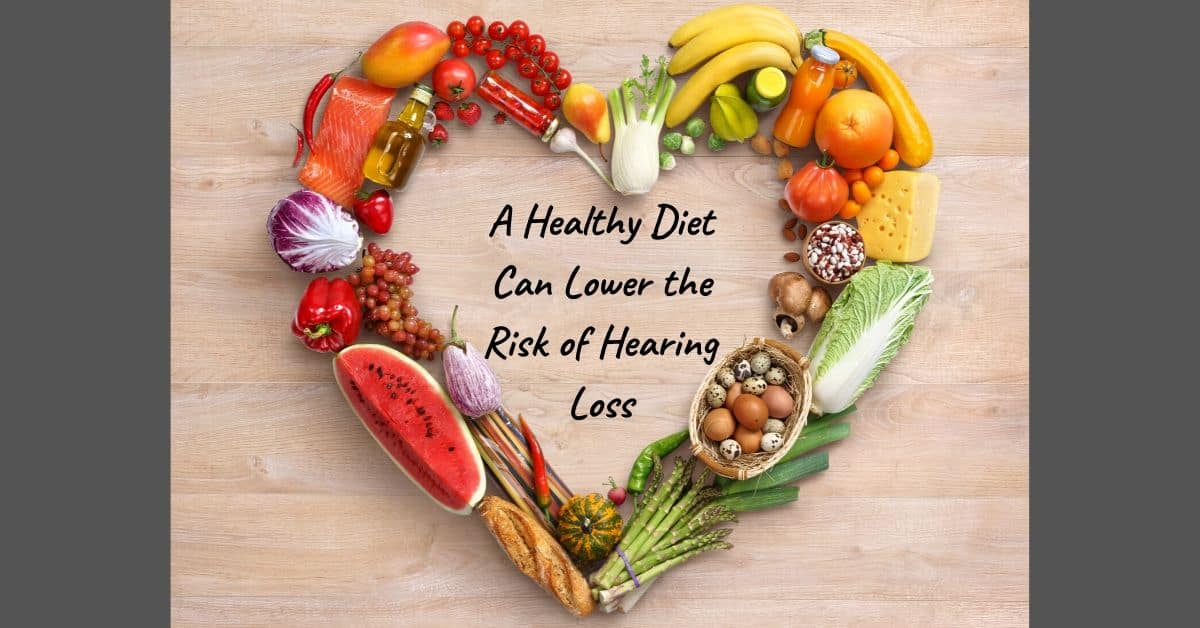A healthy diet and adequate nutrition are essential to all facets of our health. It can influence our heart, blood pressure, weight, and wellbeing.
Now there’s research that our diet and healthy hearing are also linked. While no food is guaranteed to avoid a loss of hearing or restore lost hearing, there is hope that a healthy diet can help. New research suggests that specific nutritional habits can lower your risk of developing hearing loss.
A study links specific diets with a reduction in hearing loss
A recent study published in the American Journal of Epidemiology found that by adhering to specific diets, you can reduce the onset of an age-related hearing loss.
Previous studies have suggested a link between diet and hearing safety. The researchers at Brigham and Women’s Hospital decided to rely on hearing tests rather than self-reported data. To do so, they set up test sites at nine locations across the country and instructed audiologists to track changes in people’s hearing thresholds over time.
The researchers also used the 20-year history of participants’ food intake and analyzed whether their eating patterns were similar to three widely recommended healthy diets: MedDiet, AHEI-2010, and DASH. Compliance with each of these diets has been correlated with successful aging, together with a reduced risk of cardiovascular disease, diabetes, and other chronic diseases.
The findings showed a 30 percent lower risk of mid-frequency hearing loss for women who adopted the diets most closely. They also had a reduced risk of a decline in high-frequency hearing by 25 percent.
Let’s take a look at each diet in more detail:
The Mediterranean diet
The Mediterranean diet combines traditional Mediterranean ingredients and cooking methods. Interest in this diet in the U.S. started in the 1960s when coronary heart disease was found to cause fewer deaths in Mediterranean countries like Greece and Italy than in the U.S. and northern Europe. Subsequent studies found an association of the Mediterranean diet with decreased risk factors for cardiovascular disease.
The approach is founded upon vegetables, fruits, herbs, nuts, beans, and whole grains. Meals are built around these vegetable-based foods with moderate amounts of meat, poultry, eggs, and seafood. Red meat, by comparison, is consumed only rarely. Replacing the fat in your diet with olive oil is also recommended.
The DASH Diet
DASH stands for Dietary Approaches to Stop Hypertension. The DASH diet is a way of eating designed to help treat high blood pressure or prevent it. It was developed to reduce blood pressure without having to rely on medication.
The DASH diet promotes sodium reduction in your intake. It allows you to consume a variety of nutrient-rich foods that help lower blood pressure, such as potassium, calcium, and magnesium.
Specialists say you could lower your blood pressure by a few points in as little as two weeks by following the DASH diet. There are many other health benefits associated with this diet, in addition to simply lowering blood pressure. It has been said that the DASH diet can help in preventing osteoporosis, cancer, heart disease, stroke, and diabetes.
The consequences of a poor diet on your hearing
If you don’t get the right vitamins and minerals in your diet, you may face malnutrition, and your hearing may be damaged.
Diabetes is closely associated with hearing loss, and even those with prediabetes have an increased risk of developing hearing loss by 30 percent. If you don’t get the nutrients that your body needs, you’ll suffer more damage to the inner ear’s blood vessels, nerves, and risk hearing. Your auditory brain system is also at risk when you eat a diet that is low in nutrients.
Treating Hearing Loss
A healthy diet could help prevent hearing loss, but it is also important to seek treatment if you are struggling to hear. If your hearing ability concerns you, contact us to schedule a hearing test. You’ll be able to learn more about the state of your hearing and to learn about the kinds of treatment that we offer.

